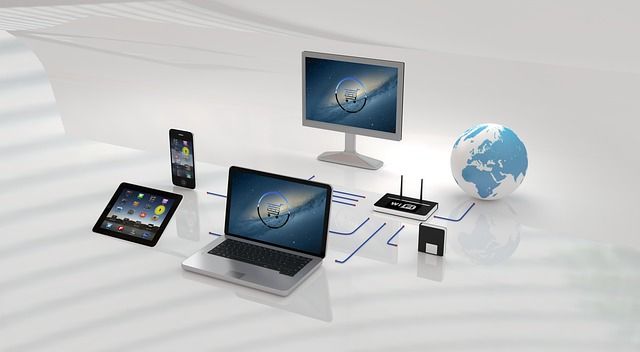B2B Ecommerce Shipping Guide
ViewPoint TMS software and shipping services boost ecommerce shippers' operational efficiency.

What is B2B Ecommerce?
B2B ecommerce involves fulfilling orders for businesses or retailers, as opposed to directly catering to individual consumers. Typically, B2B orders are less frequent, bought in bulk (FTL) , or dispatched via LTL shipping networks for larger palletized quantities (or parcel services for smaller orders).
How does B2B ecommerce differ from B2C (business-to-consumer) ecommerce?
B2B ecommerce primarily involves transactions between businesses or wholesalers, while B2C ecommerce focuses on selling products directly to consumers. B2B transactions often involve bulk orders, negotiation, and longer sales cycles, whereas B2C transactions are typically individual parcel purchases.
What are the key benefits of adopting B2B ecommerce for businesses and retailers?
The key benefits of adopting B2B ecommerce for businesses and retailers include increased efficiency in ordering and fulfillment processes, expanded market reach, improved customer relationships through personalized experiences, and access to valuable data insights for better decision-making and targeted marketing strategies.

How can I sign up as a B2B shipper?
Getting started is quick and easy! Simply fill out this form so we know where you want your freight bills to be sent, and who needs access to TLI's TMS System:
Common B2B Ecommerce Businesses
B2B ecommerce occupies a significant portion of the market, encompassing wholesalers, distributors, and suppliers. Below is an overview of the three primary types of B2B ecommerce businesses:

- Wholesalers: Wholesalers purchase goods in bulk directly from manufacturers or distributors and then resell them to other retail businesses, including other wholesalers. Traditionally, wholesale transactions were conducted through phone calls or emails, but nowadays, many wholesalers utilize sophisticated Ecommerce marketing techniques on dedicated ecommerce platforms for online ordering.
- Suppliers: Suppliers are B2B entities that serve as the primary source of goods in ecommerce supply chains. Their primary clientele consists of distributors, who in turn sell to wholesalers or retailers. It's common for suppliers to be mistaken for distributors; however, the key distinction lies in the fact that suppliers produce goods but lack the supply chain infrastructure and market reach for direct sales. Distributors, on the other hand, have broader access to distribution channels.
- Distributors: Distributors procure goods from suppliers and then sell them to wholesalers and retailers, often maintaining close relationships with their key manufacturing vendors. A significant advantage of partnering with distributors is their ability to facilitate market expansion, including international ventures.
For example, if a brand is based in the United States but desires to enter the European market, without creating a lot of risk and startup costs, they can seek out an international distributor. Such distributors possess existing, and extensive networks of retail outlets in the target regions, thereby satisfying demand for the brand's products and facilitating further market penetration.
B2B Ecommerce Services
B2B Ecommerce Platform
Many B2B ecommerce platforms have recently flooded the market, underscoring the importance of selecting the right one tailored to your business needs. Here are key considerations when choosing a B2B ecommerce platform to expand your operations:
- Build a user-friendly website: Ensure the chosen TMS platform facilitates the integration of your website, enhancing B2B buyer navigation. Opt for a domain name that is easy to remember and type, expediting customer access. Crucially, prioritize mobile responsiveness for B2B orders. Look for built-in features enabling efficient management of on-site content such as blogs (to target keywords related to your market), spec sheets, and product comparison charts, alongside volume pricing options.
- Seamless integration with current ERP software: Optimal functionality necessitates seamless integration with existing critical ERP business systems. This integration establishes a unified source of accurate B2B order data, enhancing backend processes and inventory management. Moreover, it enhances the customer buying experience by automating real-time quoting, facilitating easy payment processing, enabling recurring orders, and more. TLI offers easy ERP to TMS integration to make tracking, and quoting freight rapid and scalable.
- Third-party supplier linkage: Forge direct links between your online store and third-party suppliers to streamline order fulfillment processes. Leveraging dropshipping methods requires tight integration between your store and suppliers to expedite order fulfillment. Alternatively, partnering with a fulfillment provider, offering both DTC and B2B fulfillment across multiple locations, ensures seamless technology integration.
- Robust data and analytics reporting: Opt for ecommerce software that offers comprehensive data and analytics reporting capabilities to future-proof your online business. These tools enable easy tracking of B2B orders, identification of market trends, and analysis of user behavior. By leveraging such insights, you can anticipate business growth, address potential sales-impacting site issues, and implement further enhancements effectively.

Ecommerce Shipping
TLI serves ecommerce shippers with tailored, comprehensive freight services and innovative TMS technology.
At TLI, we provide shippers with a full suite of freight management services to simplify operations, reduce costs, and optimize supply chains. Our offerings go beyond just load tendering and include:
Freight Audit & Payment
- Expert freight invoice auditing detects billing errors and disputes improper freight classifications and weighing, identifying recovery opportunities
Claims Management
- Seasoned specialists efficiently handle cargo claims by liaising with carriers to expedite resolutions and settlements
Mode Optimization
- Leverage our operations experts to analyze shipping lanes and collaborate on tailoring the most efficient transport routes and modes
Omnimodal Brokerage
- Access diverse equipment types like dry vans, refrigerated, flatbeds via our vast carrier network to handle specialized hauling requirements
Expedited Shipping
- For time-sensitive air freight, rely on TLI’s guidance in coordinating rapid transportation while selecting equipment to safely meet urgent delivery targets
TMS Technology
- Our ViewPoint cloud-based TMS shipping system promotes supply chain transparency through real-time tracking, analytics, accounting, and more
FTL RFP Management
- We oversee tailored FTL bid solicitation processes to secure ideal rates & services from carriers based on historical shipping data trends
At TLI, our commitment is delivering top-tier freight brokerage service and support, offering expertise in consolidating freight invoices, optimizing transportation modes, and analyzing supply chain data to drive your supply chain forward.
ECommerce Freight Management
TLI adopts a consultative approach and offers an extensive array of services, ranging from freight payment to carrier sourcing and supply chain data analysis. This holistic approach offers shippers a customized, all-encompassing solution for managing logistics. We become your partner in consolidating freight invoices, improving transportation efficiency, and leveraging data-driven insights to optimize your ecommerce shipping operations.
Ship it TLI!
